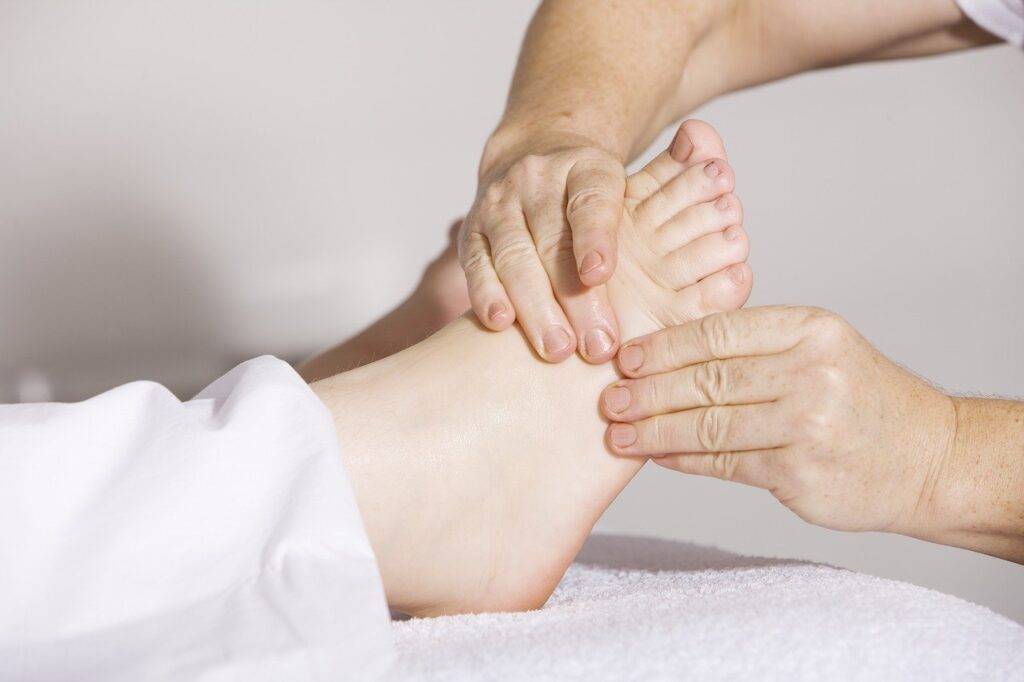Plantar Fasciitis Pain Management in Knoxville, TN

What is plantar fasciitis?
Plantar fasciitis is a degenerative condition that causes heel pain. It affects the plantar fascia – a ligament at the bottom of your foot that connects the heel bone to your toes. The plantar fascia supports the foot arch during walking, acting as a shock absorber. Consistent overuse of this tissue can result in pain and difficulty walking.What causes plantar fasciitis?
Putting a lot of pressure on your plantar fascia during long periods of standing, walking, or running can create microtears and damage the ligament, causing pain in the foot. Risk factors for developing plantar fasciitis are:- an occupation that requires you to be on your feet for a long time
- regular running
- obesity as that puts additional pressure on the plantar fascia
- tight Achilles tendon in your calf
- flat feet or high arches
- leg length inequality
- late stages of pregnancy
How common is plantar fasciitis?
Plantar fasciitis is responsible for 80% of all cases of heel pain. According to a 2004 study published in Foot Ankle International, it affects 1 in 10 adults, mostly between 40 and 60 years old. Women seem to be slightly more susceptible to it than men. About 10% of regular runners will experience plantar fasciitis at some point in their life. This condition is also very common among the patients of our Knoxville plantar fasciitis specialists at Omega Pain Doctor.Symptoms
The main symptom of the condition is sharp localized pain at the bottom of the heel, or sometimes in the middle of the foot as well. The pain has a specific pattern: it gets worse after a long period of inactivity, such as sitting, standing, or lying down. It is worst in the morning, just after getting out of bed, and gets better as you start walking around. Spending a long time on your feet can exacerbate the pain further, and some patients feel it more once the activity has stopped. The symptoms develop gradually over time, with 70% of the cases affecting only one foot, although it’s possible to have it in both feet at the same time.Diagnosis
Plantar fasciitis is usually diagnosed by a physical exam and taking a patient’s medical history. A doctor will examine the pain location and check the patient’s ability to flex the foot up towards the shin, as this maneuver can be challenging for those suffering from plantar fasciitis. Imaging tests, such as ultrasound, X-ray, and MRI, are not usually necessary for the diagnosis but might be performed to rule out other causes of foot pain.How to treat plantar fasciitis?
Even with treatment, plantar fasciitis can take weeks or months to improve. In majority of the cases, full recovery is achieved within 6 months. For mild symptoms, conservative methods such as rest, massage, ice packs, and painkillers like ibuprofen might be enough to manage the pain. A 4–6 week course of physical therapy that involves stretching both the Achilles tendon and the plantar fascia can help speed up recovery. If obesity was a factor in getting plantar fasciitis, losing weight is beneficial. Other treatment options include special shoe inserts, called orthoses, that support the affected foot during the day, and night splints that keep the ankle straight and help stretch the ligaments when you’re asleep. Both devices have been shown to reduce the pain from plantar fasciitis. If the symptoms persist, more advanced therapy options may be offered:- Steroid injections help reduce pain and inflammation by delivering corticosteroid medication to the affected area of the foot
- Platelet rich plasma (PRP) injections use the platelets from a patient’s own blood to help accelerate tissue regeneration
- Extracorporeal shockwave therapy sends vibrations to the foot to promote blood circulation and stimulate the healing process. Evidence of its efficacy is inconsistent but, due to it being a non-invasive procedure, it is sometimes considered before resorting to surgery.
Conclusion
Plantar fasciitis is a common condition that can affect professional athletes and people with sedentary lifestyle alike. It causes sharp pain in the foot when walking after a period of inactivity, or at the end of an active day. Even though it eventually improves with time, the symptoms reduce the quality of a patient’s life to the point that treatment is often necessary. There are multiple treatment options available that help manage the pain and speed up recovery, including stretching exercises, over-the-counter painkillers, steroid injections, PRP injections, or, in rare cases, surgery. If you think that you might have plantar fasciitis, the first step is to confirm the diagnosis with your doctor, who will assess the progression of the disease and recommend the most appropriate treatment that will help bring you back on your feet sooner.Plantar Fasciitis Treatment in Knoxville, TN
The first step you’ll want to take if you’re having foot or heel pain is to visit a podiatrist to get a proper diagnosis. Omega Pain Management can help you get back on your feet again. One of the best Knoxville plantar fasciitis specialists will diagnose you and create a recovery plan. For pain management in Knoxville, Tennessee, contact Dr. Igor Smelyansky. Phone: (865) 337-5137.References:
Trojian T, Tucker AK. Plantar Fasciitis. Am Fam Physician. 2019 Jun 15;99(12):744-750. PMID: 31194492.
Riddle DL, Schappert SM. Volume of ambulatory care visits and patterns of care for patients diagnosed with plantar fasciitis: a national study of medical doctors. Foot Ankle Int. 2004 May;25(5):303-10. doi: 10.1177/107110070402500505. PMID: 15134610.
